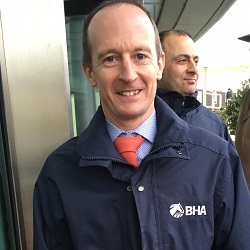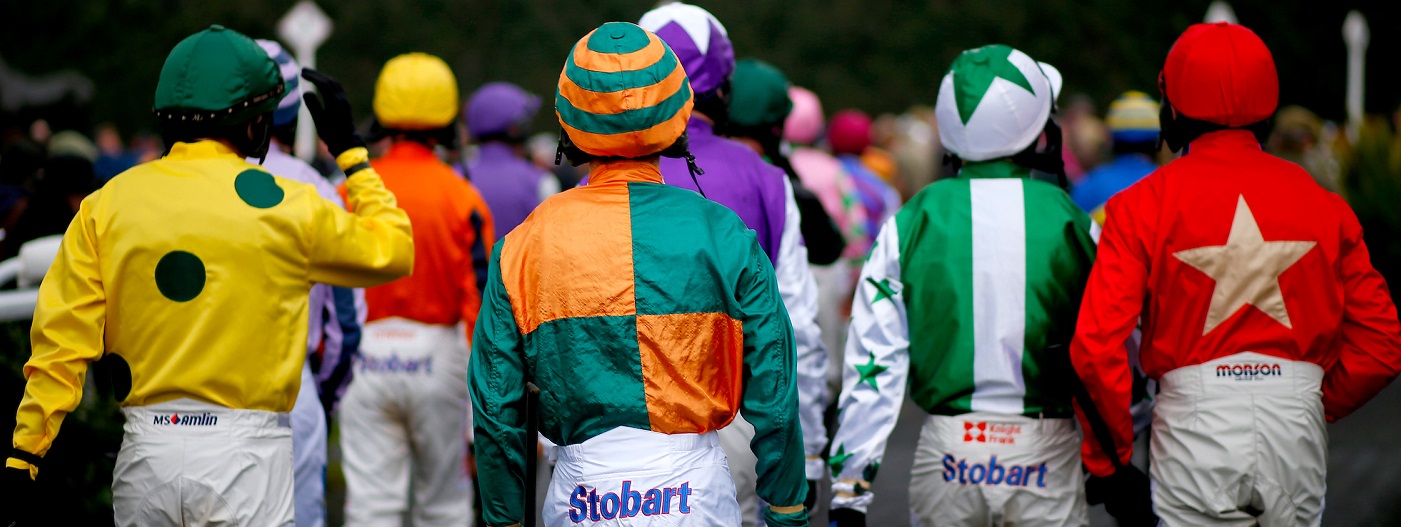
Steve Drowne enjoyed a 26 year long career as a Flat jockey, enjoying plenty of success with 1402 winners including the July Cup aboard Sakhee’s Secret and 12 Royal Ascot winners. It was during a period of illness that he started thinking about his future and what he wanted to do. Knowing that he wanted to stay in racing, he investigated possible opportunities with the BHA, securing an interview for a Stipendary Steward role in which he was successful. He then retired from riding aged 45 at the end of 2017 before taking on his new role at the start of 2018.
At what point did you start thinking about your career after riding?
In 2014, I had to take some time off with illness and I realised that at some point relatively soon my career would have to end and I started thinking about what I wanted to do. I didn’t really have any idea other than I wanted to do something in racing. At the age of 45, I knew I’d need to carry on earning for 10 or 20 more years and I needed to make sure I had a regular wage straight away so I couldn’t go back to scratch and start training or something like that.
How did you start preparing for your future?
I spoke to various different people about what opportunities existed. I kept an idea on the JETS and CareersinRacing Job Boards and I shadowed quite a few different BHA racecourse officials to see what each role entailed and I felt that the stewarding role providing the most variety and interest. I spoke to Lisa at JETS who helped me put together my CV which was really important when it came to being prepared when job opportunities came up. Somebody suggested I should apply for the Trainee Steward role, it was the first interview I’d ever done. I prepared for it by studying the rulebook and reading stewards reports but ultimately I felt I could bring a lot to the role with my experience as a jockey.
Do you think your work in other areas helped you gain the position as a steward?
Yes I had been associated with the PJA for a long time, sitting on the Council for 17 years and on the Board for 10 years and as Flat Jockey President for 10 years. I also did some media work, doing William Hill Radio when I was off injured. I was also a director of an events company based locally to where I live so I think all this experience I’d gained during my riding career helped me gain the Stewards role. It also made me less worried about the future and how I was going to make a living by doing other work before I retired from riding.
What are the main differences between your life as a jockey and as a steward?
At first it was quite a shock to the system, the hours involved were pretty intense as you have to arrive 3 hours before racing and stay until well after the last. As a jockey you had long days but you broke up the day between riding out in the morning and racing in the afternoon. The main challenge though has been all the paperwork, writing things down. It’s very different from the physical life of a jockey and you have to get used to spending a lot of time on computers, looking at websites and emails.
What do you enjoy most about the role?
I love still being so closely involved with the racing. If I’d done something outside of racing, I’d have really missed all the people. Nothing is going to take the place of riding but for me it was a case of finding something I didn’t mind and that guarantees you a steady income. I do have to work quite a few Sundays but at least I know in advance when and where I’m working, unlike being a jockey, so I can take holidays which is really important with a family. I don’t think I ever took more than 2 weeks off in my whole life as a jockey.
What has been the reaction from your former colleagues in the weighing room?
They realise I’ve got a job to do and they appreciated that I’m someone who knows what’s going on. I spent 25 years trying to win races, maybe boxing someone else in so I know the courses well, how people ride, how horses can react. Jockeys know if they break the rules, they have to take it. You’re just doing your job.
What advice would you give to young jockeys today regarding career planning?
You never know what’s around the corner, you may get injured and your career suddenly comes to an end through no fault of your own. I would suggest jockeys just think about what they may want to do in the future as early as possible and start getting a feel for different career options. With jockeys racing most days, they may as well take the opportunity to see what other roles are like on the racecourse and perhaps do some shadowing to get more of an insight.
July 2018

